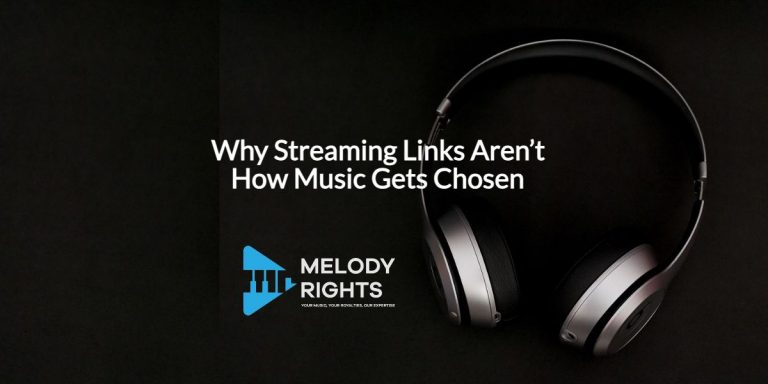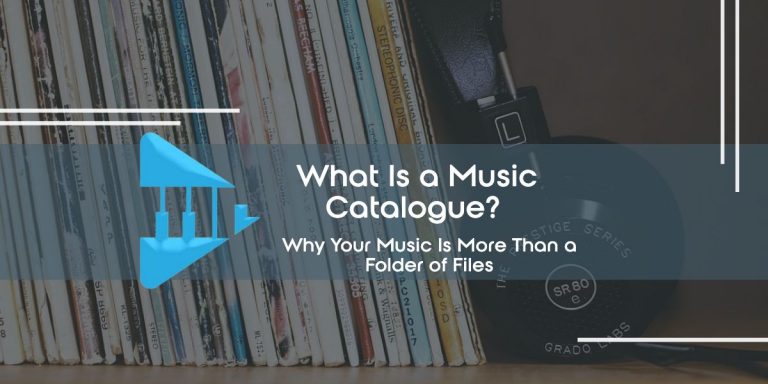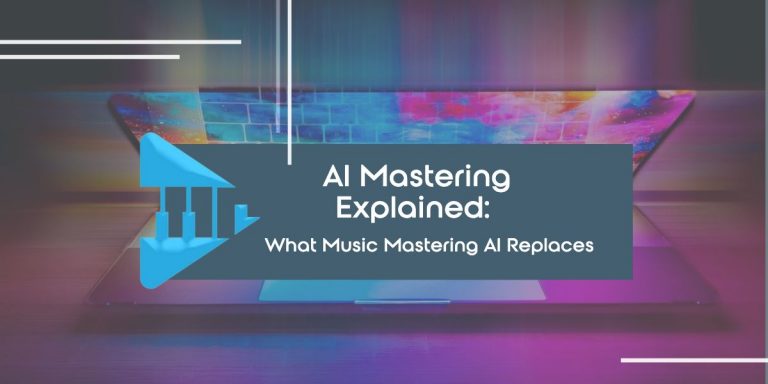Mechanical vs. Performance Royalties, What’s the difference?
You uploaded your track. The streams are rolling in. Maybe it even got played at a local bar, or featured in a YouTube video. But when the royalty statement hits your inbox… the numbers feel off. Like you’re only seeing half the picture.
Table of Contents
ToggleThat’s because you probably are.
Most indie artists know they should be collecting royalties. But few know there are two major types — and if you’re not registering correctly, you’re missing money.
This guide breaks it down. No fluff. No jargon walls. Just the truth about mechanical and performance royalties — what they are, how they’re earned, and how to make sure you’re getting all of yours.
Key Takeaway
Mechanical royalties are earned when your song is reproduced (streams, downloads), while performance royalties come from public plays (radio, venues). Most indie artists only collect one — and leave money behind.
Melody Rights helps you track both, so you don’t miss a thing.
What Are Mechanical Royalties?
Digital mechanical royalties are what you earn when your composition — the song as a piece of writing — is streamed or downloaded.
There are two types of mechanicals:
- Traditional mechanicals, which apply to physical formats (CDs, vinyl, tapes, kids toys, arcade machines, etc.) — typically administered by MCPS in the UK.
- Digital mechanicals, which apply to streams and downloads — administered in the U.S. by The MLC (Mechanical Licensing Collective).
This article focuses on digital mechanicals. They’re newer, but just as crucial — and often the ones indie artists miss.
You earn digital mechanical royalties when:
• A fan downloads your track on iTunes
• Your song is streamed on Spotify or Apple Music
Digital mechanicals come from the reproduction of your song — even in digital form.
Who Pays Digital Mechanical Royalties?
- Streaming services like Spotify and Apple Music
- Download platforms like iTunes
But here’s the kicker: they don’t pay you directly. In the U.S., they go through The MLC. If you haven’t registered your songs there, you’re missing these royalties!
International Note: Outside the U.S., other organizations may handle digital mechanicals — like SOCAN in Canada or MCPS in the UK. Melody Rights can help identify who collects in your region.
What Are Performance Royalties?
Performance royalties — also called public performance royalties — are what you earn when your composition is performed publicly, whether live, broadcasted, or streamed.
When Do You Earn Performance Royalties?
- Your song plays on radio, TV, or in a venue
- You or someone else performs your song live
- It streams on services like Spotify or YouTube
Who Pays Performance Royalties?
Performance royalties are collected by Performance Rights Organizations (PROs) like BMI, ASCAP, SESAC in the U.S.
You need to register both your songs and yourself as a writer to collect them.
Even a 30-second play in a coffee shop counts. That’s why your PRO is critical — they turn those micro-uses into micro-payments that add up.
Mechanical vs. Performance Royalties
| Mechanical Royalties (Digital) | Performance Royalties | |
| Triggered By | Digital reproduction (streams, downloads) | Public performance (radio, live shows, streaming) |
| Collected By | The MLC (U.S.) | BMI, ASCAP, SESAC (U.S.) |
| Paid To | Songwriter + Publisher | Songwriter + Publisher |
| Streaming Royalties? | Yes (via The MLC as digital mechanicals) | Yes (via PROs as public performance) |
Note: The MLC now handles most digital mechanical royalties in the U.S. Harry Fox Agency is still involved in some physical (traditional) mechanicals, like CDs and vinyl.

What’s wild is that one Spotify stream can trigger both.
But they come from different sources — The MLC for mechanicals, your PRO for performance. If you’re only signed up with one? You’re only getting half.
Composite Example: Maya’s Missed Money
This story combines real issues we’ve seen across many indie artists.
“Maya” is a stand-in for the countless DIY musicians who’ve uploaded their EPs to DistroKid, registered with BMI, and thought that was enough.
But Maya didn’t know about The MLC.
Her tracks were streaming consistently on Spotify. She assumed BMI was collecting everything. But BMI only covers performance royalties — not mechanical royalties.
The money from streams? Only half of it was getting to her.
She noticed something was off when her royalty statements didn’t match her listener growth. After digging deeper, she registered with The MLC, cleaned up her metadata, and now uses Melody Rights to track her rights.
Maya’s story is a blend of real artist experiences. And the lesson’s clear: If you’re not registering all your rights, you’re not collecting all your income.

Common Royalty Mistakes (That Cost You Real Money)
❌ Only registering with BMI or ASCAP — and skipping The MLC
❌ Uploading to DistroKid and assuming they collect everything
❌ Not double-checking your ISRCs or metadata across platforms
❌ Thinking you don’t need a publisher — even if you are the publisher
You don’t need to be perfect. But you do need to be proactive.
👉 Read: How Much Royalties Do Songwriters Get
Think You’re Getting All Your Royalties?
You might be missing half. Melody Rights helps artists like you track what’s unpaid — and claim what’s yours.
👉 Check your rights now
How to Make Sure You Get Paid
- Register your songs with a PRO like BMI or ASCAP
- Sign up with The MLC to collect U.S. mechanicals
- Use Melody Rights to track what’s missing and fill in the gaps
- Double-check your metadata — especially song titles, splits, and ISRCs
- Watch your royalty statements across platforms
FAQ’s Mechanical vs Performance Royalties
What’s the difference between mechanical and performance royalties?
Mechanical = for reproductions (like streams/downloads); Performance = for public plays (like radio/live).
What are examples of performance royalties?
Radio spins, live concerts, music in bars or restaurants, streaming on Spotify or YouTube.
Who pays performance royalties?
Usually the broadcaster, venue, or platform — they pay the PRO, which then pays you.
What are the two types of royalties in music?
Mechanical and Performance are the main types tied to the composition. (There are also Master royalties — separate conversation.)
What about master royalties vs. publishing royalties?
This post focuses on publishing royalties (mechanical and performance). Master royalties — tied to the sound recording — are a different income stream and will be covered in a separate guide.
Melody Rights Can Help
The truth is, DistroKid and similar platforms only cover part of your income.
Melody Rights helps you:
- Find your unclaimed royalties
- Register with The MLC, PROs, and more
- See where your rights are leaking money
If you made the music, you deserve all the money.
We’ll help you claim it.
👉 Ready to stop guessing and start collecting?
Join Melody Rights — and take back what’s yours.



